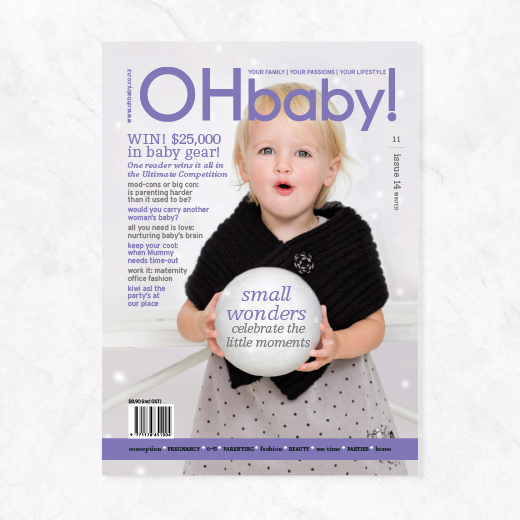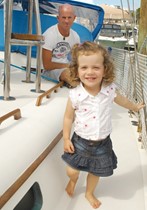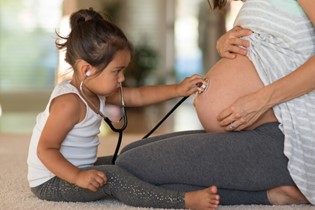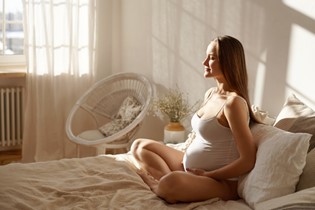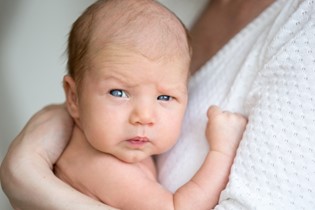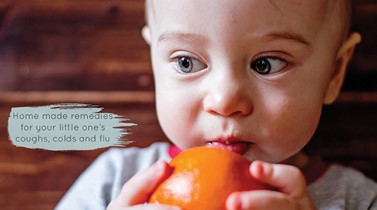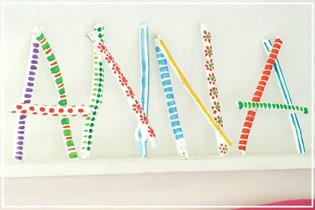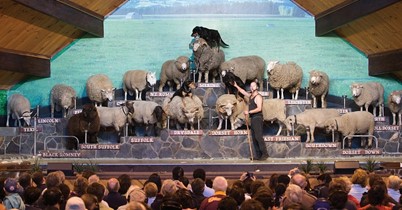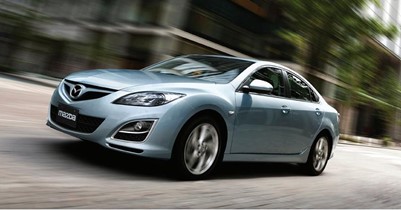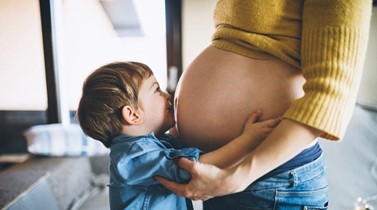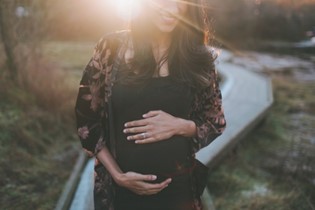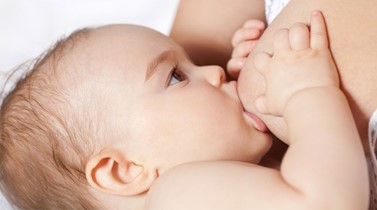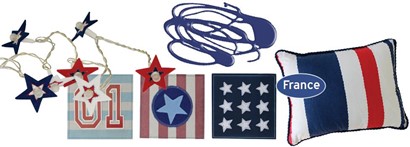Sailing solo
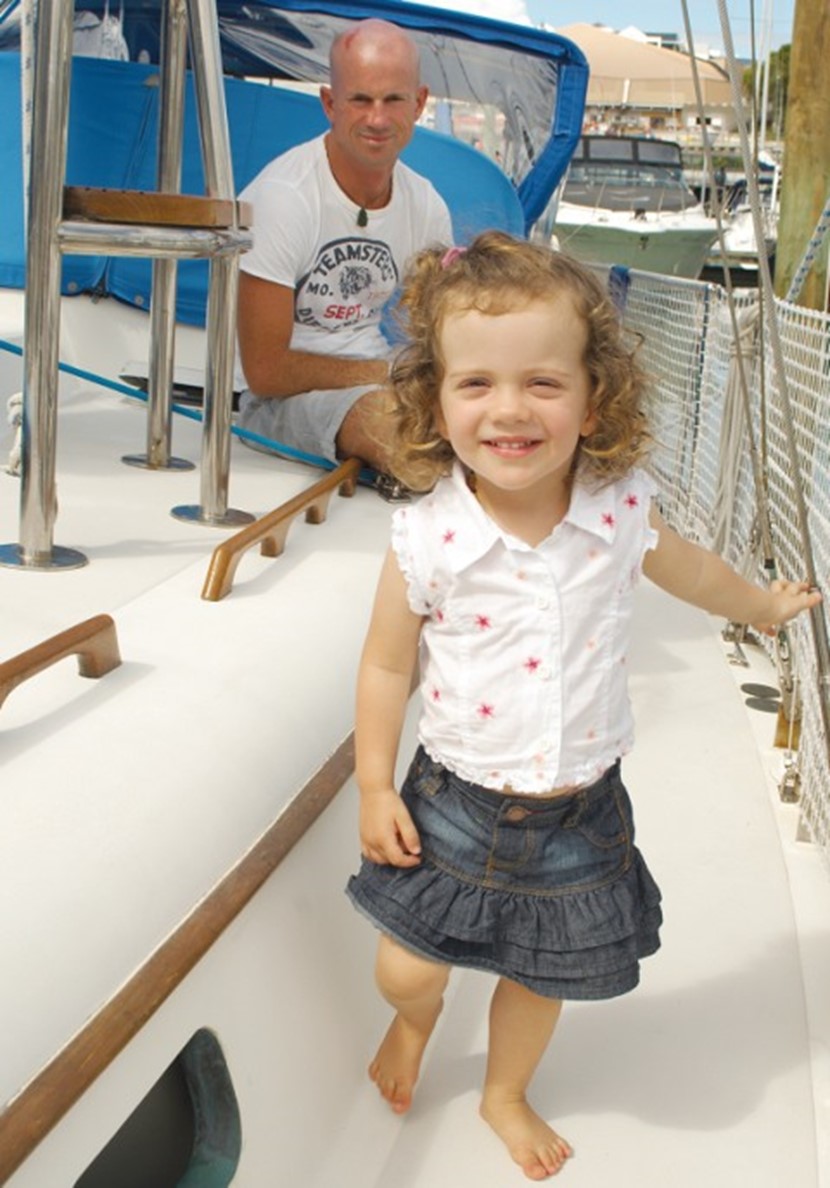
Anchor me
David Whyman has weathered more storms than any parent should have to cope with - cyclones, big seas and the cancer that took his wife just weeks after she gave birth to their daughter. He tells Rochelle Gillespie his story of courage, hope and above all - love.

One of the jobs of parenting is to be an "anchor" to our children - the weight that will help keep them from floating adrift on rough seas. Kiwi David Whyman knows the role all too well. Before becoming a father to two-year-old Eva, he was an anchor to his wife Karen as she fought and lost a battle with invasive ovarian cancer.
David and Karen were two ex-pats living in Australia when they met through an online dating service in 2007. He was in construction and she was a paediatric ICU nurse. David remembers looking at her early in the relationship and noticing: "She was really, really skinny and it looked like she was about 20 weeks pregnant. I said, 'That's not normal - have you considered going to a doctor?'"
Karen thought it was nothing, just an ovarian cyst which she'd had before. But on David's nudging she booked a doctor's appointment. This wasn't just another ovarian cyst, it was a tumour the size of a rugby ball and she had to have an operation the very next day.
David and Karen had known each other for seven weeks. They had the obligatory conversation about commitment, Karen giving David the opportunity to walk away now - no strings attached. He stayed. The tumour was removed, Karen had chemotherapy and was given the all-clear.
In between hospital visits, romance was blooming. They married in April 2008 on a beach in Palm Cove, Australia - just the two of them. No guests, no family or friends and no cancer.

An unwelcome guest returns
The following month they moved back to Karen's home in London. She was technically in remission so they enjoyed the newlyweds' life - travelling in a campervan around the UK and sailing through Croatia. In the middle of the year Karen said she'd like to start trying for a family. They thought their chances of getting pregnant were pretty low because one of Karen's ovaries had been taken out when the tumour was removed, but within a month she was pregnant.
Karen was sick, "crazy sick", and while they tried to explain it away as pregnancy symptoms they knew it was something much more serious when she passed out in a café. When Karen was 27 weeks pregnant she had an MRI. The cancer was everywhere.
"Stomach, kidneys, liver, lungs and at that point the specialist comes in and says, 'This is non-curative.' I said, 'What does that mean?' He said, 'To be blunt we can't fix this and you're going to die somewhere between two weeks and two years,'" David recalls.
David says, contrary to doctors' advice, the couple decided against chemotherapy. "We already knew Karen was going to die so we thought, 'Why risk having a disabled baby?'
"We thought a solo parent bringing up a child with special needs would be horrendous and we decided not to risk it."
So began the race of their lives. Weekly scans to see which was growing faster - the baby or the cancer. Crunch time came at 31 and a half weeks when "things were turning to custard". Karen's liver was inflamed, she was still at home, but they weren't coping. They went to hospital and the night before Karen was due to have a Caesarean her waters broke.
Bittersweet arrival
Eva's birth was a bittersweet moment. She was delivered nine weeks early, weighing a tiny 1.3kg. She was small but healthy. Within seconds of the euphoria of birth the harsh reality of their situation came crashing down on the new parents.
"Eva's in the corner of the room with all the nurses, and I'm with Karen and now the oncology guy has his hands in her stomach checking out all the cancer."
Karen was given a week to live. Eva was in NICU and David was doing his best to be a dad to his tiny bundle. He would change her nappies and do all her tube-feeds - leave at midnight, stopping in to see Karen on the other side of the hospital and be back at 7am.
It's impossible to imagine what Karen was experiencing at this time. David says Karen had distanced herself from the impending birth. "She was facing somewhere between one week and two years of saying goodbye to her baby. So her approach was that I had to learn how to do this whether I liked it or not."
David says it was hard for him. "I had no idea what I was doing. I think she was doing it to protect herself." Karen did get to come home for a month after Eva's birth, but her last month was spent in a hospice. She died two months after Eva was born.
Mum's the word
David, the grieving widower, packed up his baby girl and came home to his parents in Northland. He bought a boat that, decked out with netting around the sides, is crawler and toddler-proof. Eva has her own room where a photo of her mum and dad takes pride of place. She sleeps solidly, 7pm to 7am without fail. Doubtless the motion of the boat on the water helps, but David puts it down to using a very structured routine with her right from when she was a very tiny baby.
Karen may not be a mother in body, but she is still very much alive in spirit for h er young daughter. In fact, one of Eva's first words was "mum", thanks in part to David's efforts to have many photos of Karen around for her to look at. They have videos of mother and baby together doing regular mum and baby things, such as Karen giving Eva a bath and a bottle. And David has been keeping a blog documenting their lives together, beginning when Karen was pregnant.
er young daughter. In fact, one of Eva's first words was "mum", thanks in part to David's efforts to have many photos of Karen around for her to look at. They have videos of mother and baby together doing regular mum and baby things, such as Karen giving Eva a bath and a bottle. And David has been keeping a blog documenting their lives together, beginning when Karen was pregnant.
Sometimes when people know they won't be around to see their kids grow up, they leave a special video message, or a letter with motherly advice. Karen didn't do that for Eva, and David's still a little bitter about that. "I think that was selfish and she knew I felt that way, but that was her way of dealing with it."
He says it's something he "cannot pretend to understand, and I would never insult a woman in that situation".
Sailing solo
David says the most difficult thing about being a solo parent is his own isolation. In the years before meeting Karen he lived a nomadic life between Melbourne, Sydney, New Zealand and before that Canada. He has great friends but he hasn't spent long periods of time with them for many years. In fact, many of his friends had never met Karen.
David says the way he copes is to break down the future into little segments. He's overwhelmed at the thought of parenting Eva by himself for the next 15 years, but if he thinks about the next five years then it's not so bad. "By the time she starts school the dynamic will shift."
David knew the love of his life for only two years. They did talk of him finding another partner at some point. He hopes for Eva's sake that will happen, but for now he's enjoying the freedom of not working and being free to set sail on a whim. It's cheap living. He's pushing to spend $25,000 per year "and that's everything - nappies, fuel, insurance".
David certainly doesn't miss his previous life as a well-paid but stressed executive in the construction industry. He says when he is ready to go back to work he wants to find a job where he can go home at the end of the day knowing that he's made a difference in someone's life. He's still repairing himself from the wounds of the past three years ("my head is so fragile"), but Eva is his joy. "She's so easy, living on a boat is easy."
Right now they have a couple of female deckhands on board while they sail around Tonga, indulging David's other great romance - a love of the open ocean.
Yes, the waters may be rough at times, but after the past three years the fresh open sea air is just the tonic for this daddy-daughter team. David and Eva are a unit of devoted love and adventure, sailing the Pacific seas, heading ashore to play with other kids on the beach and doing their best to keep a steady course.
Rochelle Gillespie is a proud mother of three gorgeous children.

AS FEATURED IN ISSUE 14 OF OHbaby! MAGAZINE. CHECK OUT OTHER ARTICLES IN THIS ISSUE BELOW
